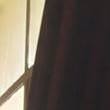Conviction u/s 364 on carbon copy statement
 Om Prakash Dhusia
(Querist) 14 December 2010
This query is : Resolved
Om Prakash Dhusia
(Querist) 14 December 2010
This query is : Resolved
My wife & son were charged for 364/302/201IPC but convicted u/s 364IPC to 7 Yrs RI& are on bail pending appeal.The judge relied on the improvised statement of PW.Ironically original improvised statement found missing from the file and he convicted them on statement on carbon copy.Is it legal in law? as I have been made to understand that Session Judges in India have extra-ordinary powers and they can not be questioned on thier way of judgment wherein I want to submit a petition to the Hon'ble Chief Justice,Allahabad High Court.(U.P.)
Kindly advise: a)Is judge was within his power to convict on the statement on carbon copy when original is missing.b)Can he prepare the Replica of original with consent of PP and our defence lawyer. and if so, would this not be forgery?c)Can I raise this issue before Hon'ble Chief Justice.Allahabad High Court?
 Ajay Bansal
(Expert) 14 December 2010
Ajay Bansal
(Expert) 14 December 2010
I THINK THE JUDGE CAN CONSIDER EVIDENCE OF CARBON COPY.
 Parveen Kr. Aggarwal
(Expert) 15 December 2010
Parveen Kr. Aggarwal
(Expert) 15 December 2010
Sections 61 to 65 of the Indian Evidence Act, 1872:
"61. Proof of contents of documents. The contents of documents may be proved either by primary or by secondary evidence.
62. Primary evidence. Primary evidence means the document itself produced for the inspection of the Court.
Explanation 1.--Where a document is executed in several parts, each part is primary evidence of the document:
Where a document is executed in counterpart, each counterpart being executed by one or some of the parties only, each counterpart is primary evidence as against the parties executing it.
Explanation 2.--Where a number of documents are all made by one uniform process, as in the case of printing, lithography or photography, each is primary evidence of the contents of the rest; but, where they are all copies of a common original, they are not primary evidence of the contents of the original.
Illustration
A person is shown to have been in possession of a number of placards, all printed at one time from one original. Any one of the placards is primary evidence of the contents of any other, but no one of them is primary evidence of the contents of the original.
63. Secondary evidence. Secondary evidence means and includes--
(1) certified copies given under the provisions hereinafter contained;
(2) copies made from the original by mechanical processes which in themselves insure the accuracy of the copy,and copies compared with such copies;
(3) copies made from or compared with the original;
(4) counterparts of documents as against the parties who did not execute them;
(5) oral accounts of the contents of a document given by some person who has himself seen it.
Illustrations
(a) A photograph of an original is secondary evidence of its contents, though the two have not been compared, if it is proved that the thing photographed was the original.
(b) A copy compared with a copy of a letter made by a copying machine is secondary evidence of the contents of the letter, if it is shown that the copy made by the copying machine was made from the
original.
(c) A copy transcribed from a copy, but afterwards compared with the original, is secondary evidence; but the copy not so compared is not secondary evidence of the original, although the copy from which
it was transcribed was compared with the original.
(d) Neither an oral account of a copy compared with the original, nor an oral account of a photograph or machine-copy of the original, is secondary evidence of the original.
64. Proof of documents by primary evidence. Documents must be proved by primary evidence except in the cases hereinafter mentioned.
65. Cases in which secondary evidence relating to documents may be given. Secondary evidence may be given of the existence, condition or contents of a document in the following cases:--
(a) when the original is shown or appears to be in the possession or power of the person against whom the document is sought
to be proved, or of any person out of reach of, or not subject to, the process of the Court, or of any person legally bound to produce it, and when, after the notice mentioned in section 66, such person does not produce it;
(b) when the existence, condition or contents of the original have been proved to be admitted in writing by the person against whom it is proved or by his representative in interest;
(c) when the original has been destroyed or lost, or when the party offering evidence of its contents cannot, for
any other reason not arising from his own default or neglect, produce it in reasonable time;
(d) when the original is of such a nature as not to be easily movable;
(e) when the original is a public document within the meaning of section 74;
(f) when the original is a document of which a certified copy is permitted by this Act, or by any other law in
force in India to be given in evidence; (g) when the originals consist of numerous accounts or other documents which cannot conveniently be examined in Court and the fact to be proved is the general result
of the whole collection.
In cases (a), (c) and (d), any secondary evidence of the contents of the document is admissible.
In case (b), the written admission is admissible.
In case (e) or (f), a certified copy of the document, but no other kind of secondary evidence, is admissible.
In case (g), evidence may be given as to the general result of the documents by any person who has examined them, and who is skilled in the examination of such documents."
 Om Prakash Dhusia
(Querist) 15 December 2010
Om Prakash Dhusia
(Querist) 15 December 2010
Indeed Mr.Parveen Kr.Agarwal and many thanks for this valuable piece of document.It has made my day and now I can nail that biased, arrogant, inept, prejudiced judge, no matter even if he is immune to any action on his wrongdoings but I will leave no stone unturned till I am alive.At least this act will prove that he should not have used that carbon copied statement of PW and this carbon copy seems to be forged by him to punish the innocents.To me a judge is not above the country's law. Thanks dear. God bless you.
 Parveen Kr. Aggarwal
(Expert) 15 December 2010
Parveen Kr. Aggarwal
(Expert) 15 December 2010
